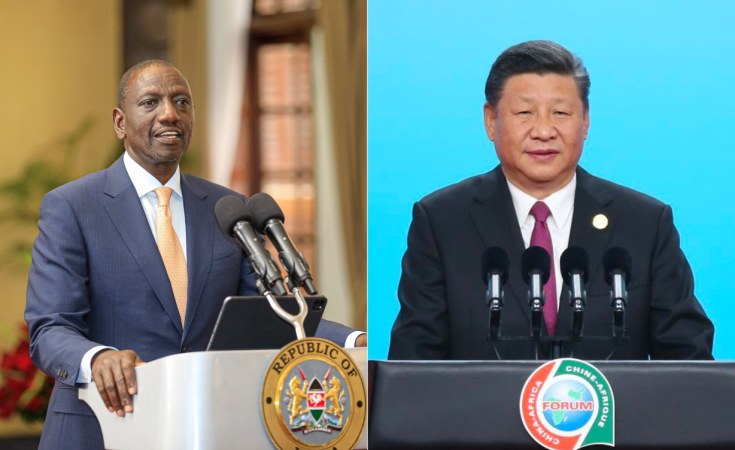President William Ruto is set to embark on his first State Visit to China since assuming office, a milestone that underscores Kenya's deepening strategic ties with Beijing and its broader ambitions on the global stage.
The five-day visit, scheduled to begin on April 22 at the invitation of President Xi Jinping, comes at a pivotal time of shifting geopolitical dynamics. It presents Kenya with a prime opportunity to reinforce its economic agenda, secure vital infrastructure financing, and position itself as a leader in shaping South-South cooperation for a sustainable future.
During his visit, President Ruto will hold high-level talks with President Xi, Premier Li Qiang, and National People's Congress Chairman Zhao Leji, reflecting China's recognition of Kenya as a key partner in Africa. The two nations are expected to sign multiple bilateral agreements across sectors such as trade, manufacturing, agriculture, climate change, education, tourism, security, and technology transfer.
Top on the agenda are discussions around financing major infrastructure projects, including the extension of the Standard Gauge Railway (SGR) from Naivasha to Malaba via Kisumu, and the proposed dualing of the Rironi-Mau Summit highway--part of the larger Rironi-Malaba corridor. These projects aim to enhance regional connectivity and commerce. "We are looking forward to completing our transport grid by 2030. We want to borrow from China's advancements in green energy and electric mobility," Ruto said, highlighting his ambition to expand Kenya's use of solar power and electric vehicles.
The visit will also cement cooperation under the Belt and Road Initiative (BRI), which China launched in 2013 to strengthen global infrastructure and trade connectivity. Kenya has been a key BRI partner, having already benefited from major Chinese investments in roads, railways, and energy. Ruto last visited China in September 2024 for the BRI Forum.
This State Visit is expected to culminate in the signing of a Comprehensive Strategic Partnership Agreement, which will serve as a framework to deepen collaboration in key sectors. It will boost support for county hospitals, Technical and Vocational Education and Training (TVET) institutions, and flagship infrastructure such as the SGR and the Kenya Digital Infrastructure Project.
According to a brief from the Ministry of Foreign Affairs, the talks will be aligned with the Kenya Kwanza administration's Bottom-up Economic Transformation Agenda (BETA), focusing on inclusive growth through innovation, investment, and capacity-building.
The Cabinet has already approved the dualing of the 170-kilometre Rironi-Malaba highway, with construction set to begin in June 2025.
President Ruto will be accompanied by several cabinet secretaries and senior government officials, including Prime Cabinet Secretary Musalia Mudavadi, highlighting the visit's significance. His engagement with Chinese private sector leaders is expected to secure new investments, particularly in sectors that create jobs for youth and women, including the blue economy, digital trade, creative industries, and environmental conservation.
Beyond bilateral matters, Ruto is also expected to advocate for the reform of the global financial system, calling for a more fair, inclusive, and predictable architecture that serves the needs of developing countries.
"This State Visit is a great honour for me and the people of Kenya. It reflects the strong friendship between our two countries and gives us an opportunity to expand our relationship for mutual benefit," Ruto said ahead of the visit.
Kenya and China first established diplomatic ties in 1963, though relations were briefly suspended in 1967 before being restored in 1978. Today, China is Kenya's largest trading partner and one of its top sources of development financing.


